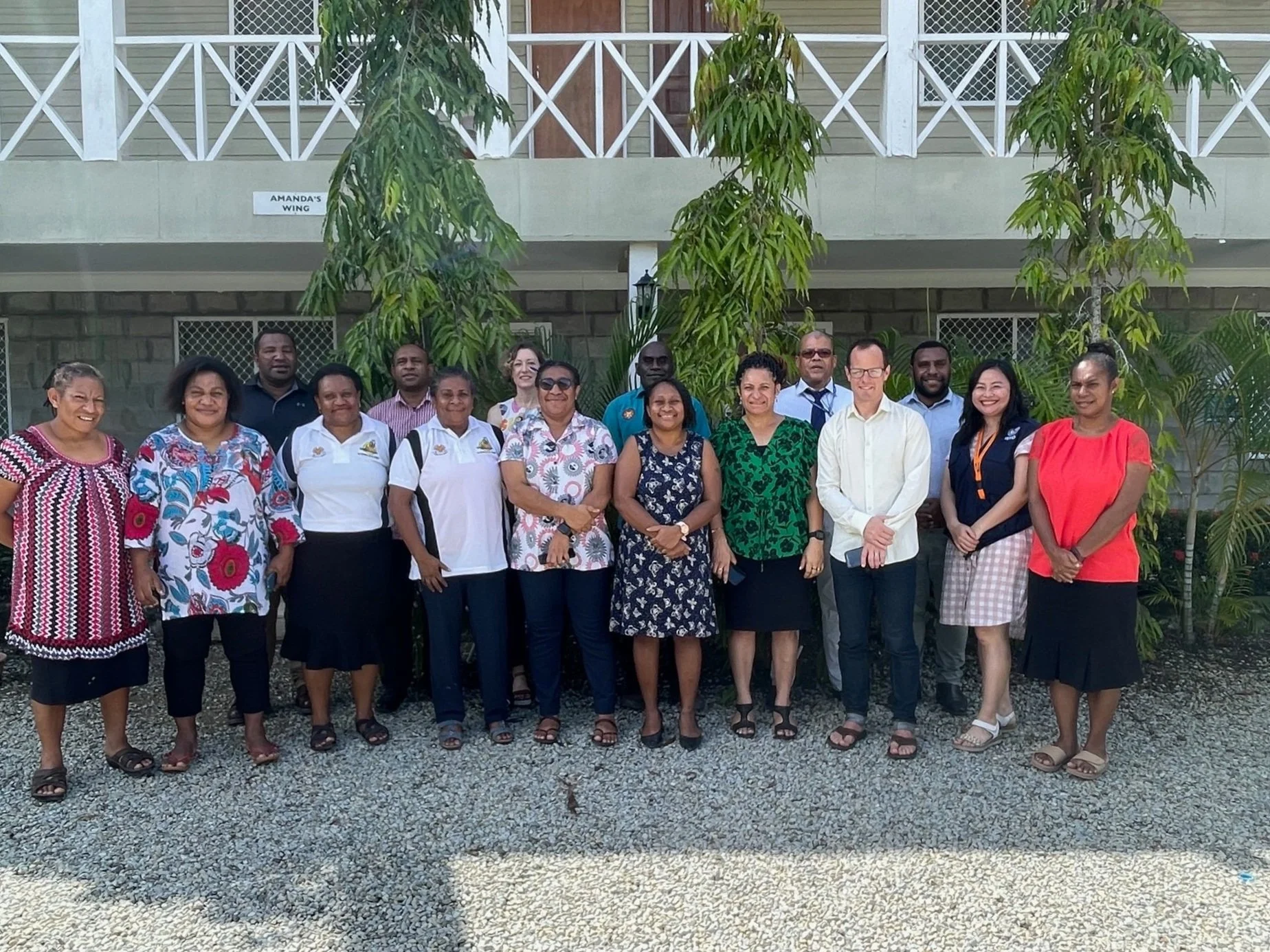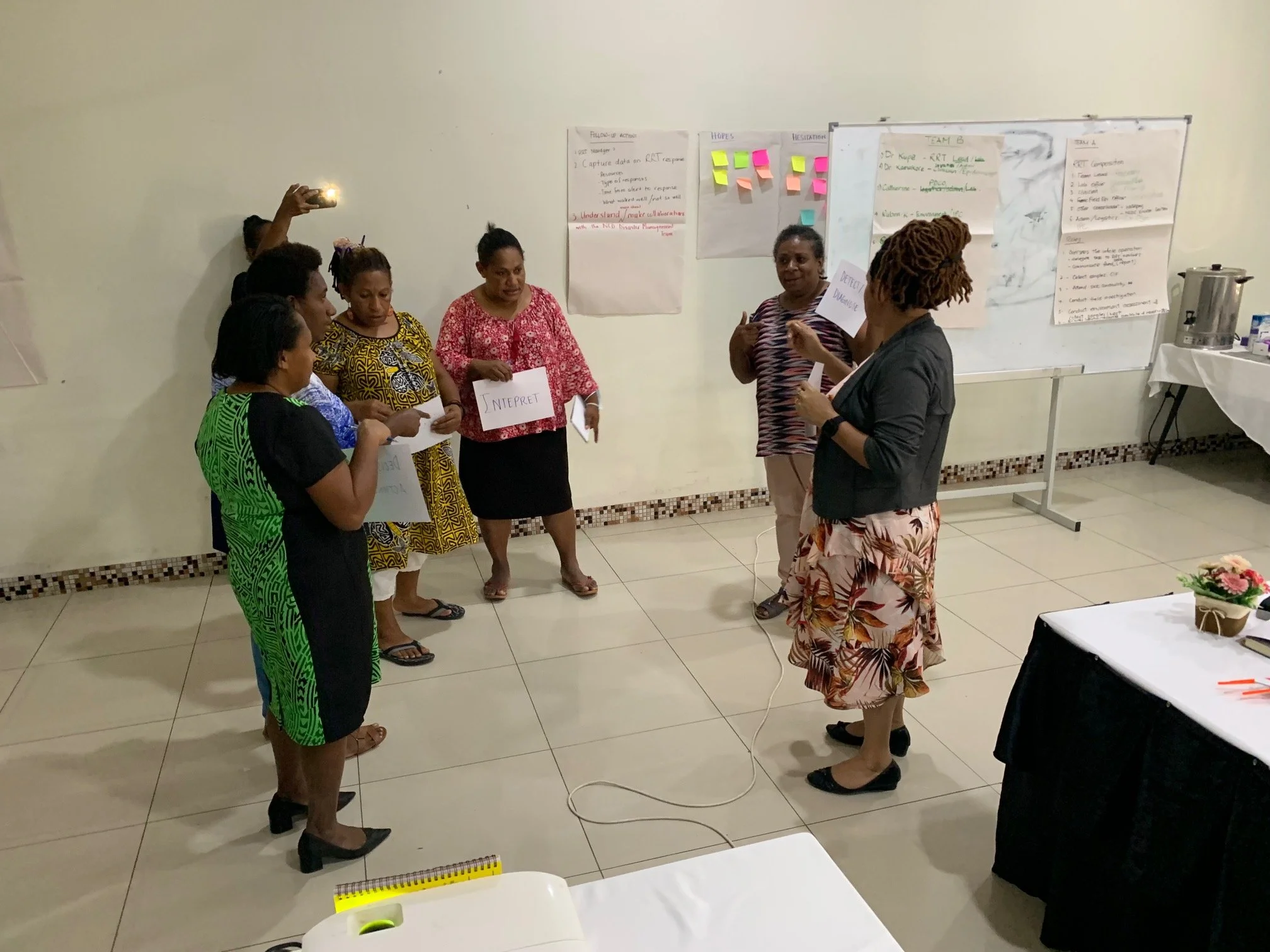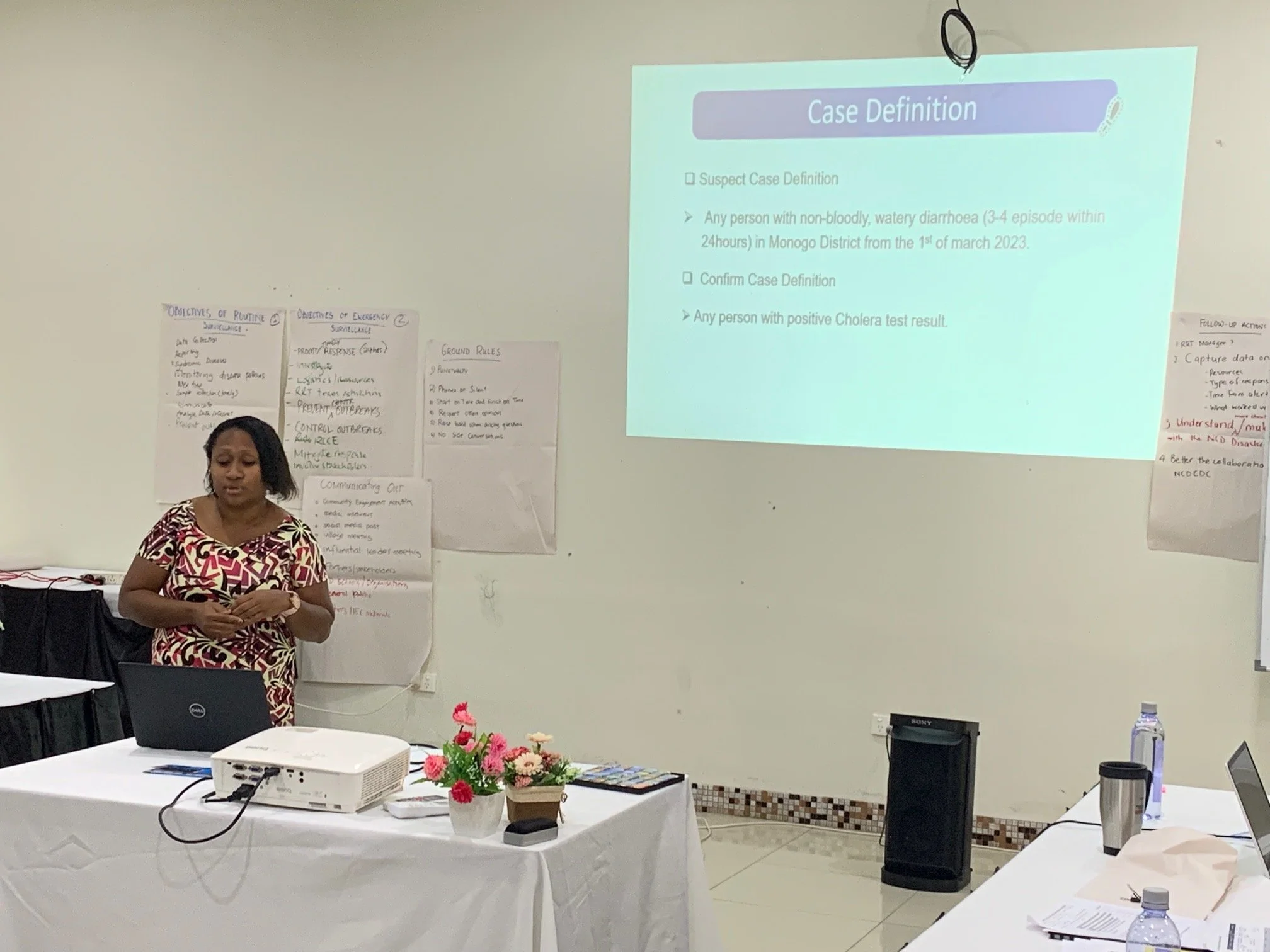Building Competency and Collaboration: Insights from a Rapid Response Program Participant
Collated by Callum Thirkell - PNG Intermediate Program Faculty at Field Epi in Action
Background
Beginning on May 1, FEiA supported FETPNG to pilot Phase 3 of the Rapid Response Program with the National Capital District provincial RRT. The five-day competency-based technical training was delivered through a scenario lens. Participants were led to a fictitious province where a natural disaster and outbreak of illness of unknown origin had occurred. The RRT members had to use their technical and soft skills to work together to investigate, find the source of the outbreak, and make public health recommendations. In an interview with Dr. Fiona Kupe, a paediatrician and participant in the program, she shared her experience and key learnings from the training.
Interview with Dr. Fiona Kupe
"My name is Dr. Fiona Kupe, and I am a paediatrician based at General Hospital in Port Moresby, the National Capital District provincial health authority. I'm the head of paediatrics in the province and mainly do clinical work," Dr. Kupe introduces herself.
"But, I'm also heavily involved in public health programs, especially surveillance. I am the focal point for the collection of syndromic surveillance from hospital sites; so this is sentinel reporting from hospital sites such as the Port Moresby General Hospital and also other private hospitals in the city. We report this data to Rosemary (our provincial surveillance lead) and then it goes to the national level."
When asked about her key learnings from the RRT competency training, Dr. Kupe explained, "The main two things were the general outbreak investigation session and risk assessment. We usually go out into the field, but coming here, it shows you the step-by-step process and to follow a more structured approach, what is required, timeframes, etc. The risk assessment was new and really interesting and useful. This helped to identify priorities rapidly, because these need to happen fast, and to identify the key things that need to be done."
Additionally, Dr. Kupe highlighted the importance of RRT communication, community engagement, psychological first aid, and managing rumour logs, all of which were new approaches to her. These techniques and approaches stood out as key takeaways from the training.
"RRT communication and community engagement was a new thing, a new approach for me. Psychological first aid was fascinating and something everyone just ignores, but it's really important. The rumor log was also new to me; there are lots of rumors out there, and if you don't tackle them, they just keep going.”
Key Learnings from RRT Competency Training
When asked about her favourite aspect of the RRT competency training, Dr. Kupe highlighted the engaging and interactive nature of the program. She commended the trainers for successfully delivering the content in a manner that kept participants fully engaged throughout the day.
“This was a full week and throughout the days no one was getting bored, everyone was very engaged and enjoyed the mixed styles. This is something I will take back - I do lots of training as a consultant, so I will adapt my teaching methods to help keep people engaged."
Regarding the team-building exercise, Dr. Kupe fondly recalled, "I loved it! It brought the team together - some of us didn't know each other well, and the training is team-focused and being able to work together well. These activities helped this a lot."
When asked if she would recommend the training to others, Dr. Kupe responded with enthusiasm, "I would definitely recommend others to take this training. It helps with how to respond, but it's also the techniques, in terms of communication and the methods of teaching. I feel I am better prepared and well equipped now, for myself and for the team to go into an outbreak"
About Field Epi in Action
We facilitate proven high impact intervention-based field epidemiology training, designed to develop work-ready graduates equipped with the necessary tools to support outbreak detection and response.



